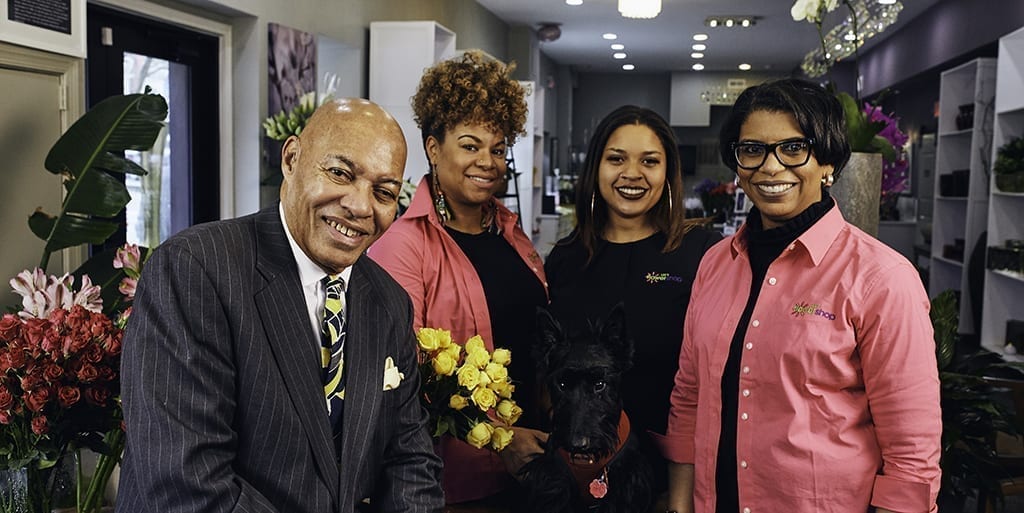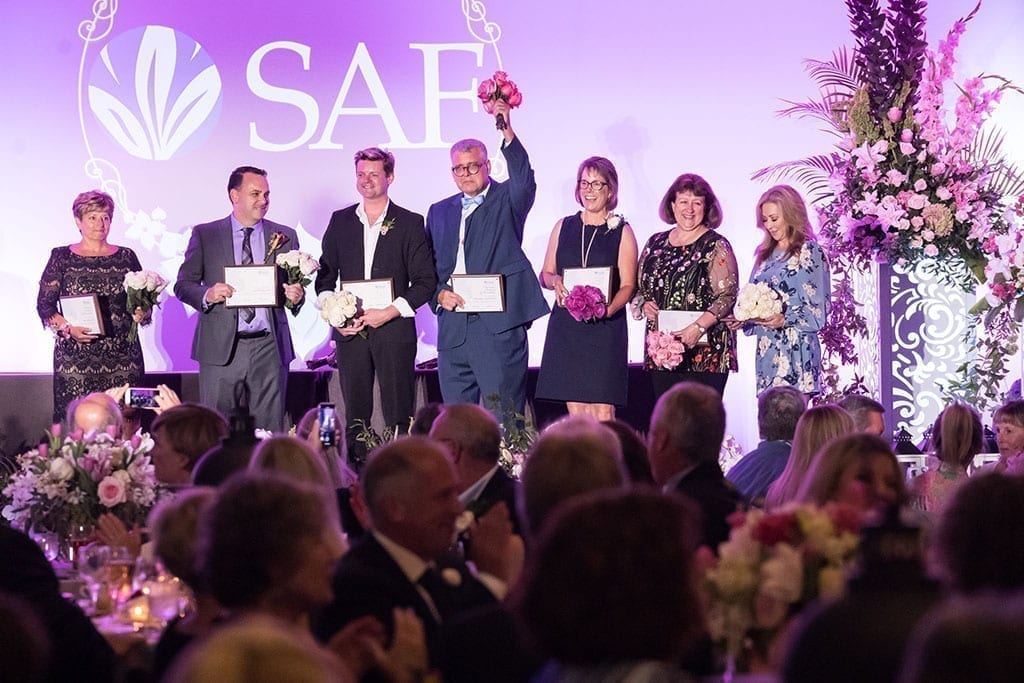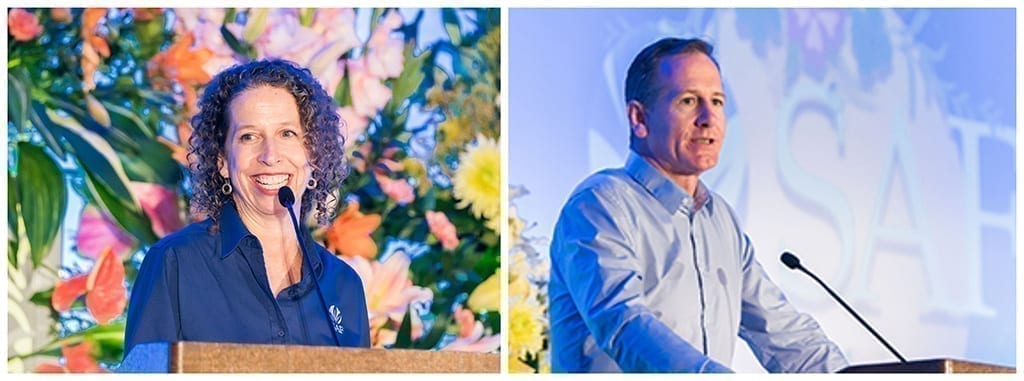Five months into the pandemic, business owners face new hurdles as the threat of the virus remains constant, and local, state and national leaders impose new restrictions, change strategies and communicate conflicting messages. The tumult is taking a toll: Small-business owners are worried about their financial viability and dealing with the emotional toll of a months-long grind, with no end in sight. Where to look for hope, guidance and inspiration? On July 30, during the Society of American Florists’ Reinvention Summit, two sisters from a longtime, historic flower shop in Washington, D.C., will share some of the lessons they’ve learned so far from the pandemic and social upheaval — and how they are drawing on the foundation of their brand as a community-oriented local business to push through the chaos.
“We specialize in flowers, but our business, really, is rooted in people,” said Stacie Lee Banks, AAF, of Lee’s Flower and Card Shop. “That was true before the pandemic, and it’s still true today.”
Banks and her sister, Kristie Lee Tyler, will talk about the history of their family’s business, which has strong roots in the Civil Rights Movement of the 1960s, during their July 30 presentation, sponsored by Teleflora. They’ll also share some of the concrete strategies they’ve put in place over the years to create a strong network among community partners, including local government, civic groups, nonprofits and area businesses — and why some of those connections have proved especially meaningful in the last few months.
“I just don’t see how you can survive as a small business if you don’t care about relationships,” said Banks, who has been profiled several times over the years in Floral Management, most recently in a 2019 cover story on Lee’s. “We’re always doing things to meet new people, because you need a really big web of potential customers. But what’s sustained us long-term, especially through the lean times, are families that have been with us for generations. We knew their parents and grandparents and they knew ours.”
The sisters will share how they’ve navigated this period in part by reflecting on what has made their business unique in their community and focusing on those principles — including the family’s willingness to jump into local politics and serve as a voice for issues that matter to them, including the Black Lives Matter movement.
“For as long as I can remember, we’ve always known the mayor and most of the local politicians,” Banks said. “Political activism has been another big catalyst for business.”
Tyler agrees. “When we care about an issue, we want to speak up about it,” she said.
Their conversation will be followed by a panel of industry members discussing their own stories of moving through this crisis as small businesses with deep community ties and strong brands, with lessons and stories of their own to share.
After the panel discussion, Summit participants can discuss their own strategies for building (and rebuilding) local connections to better leverage positive consumer sentiment toward Main Street businesses during a series of small roundtables.
The July 30 programming for the Reinvention Summit reflects anecdotal feedback from SAF volunteer leaders and member surveys that consumers want to support local businesses during the crisis, said Kate Penn, SAF’s CEO.
“Local florists are in a unique position to capitalize on this trend,” she added. “We know that our members already are experts in delivery, and they’ve created new, safe opportunities to connect people and flowers and plants in this time of physical distancing through services like contact-free or touch-free delivery and curbside pick-up. The programming on July 30 will give industry members from all segments a chance to consider and share new strategies in communicating with customers and separating your brand out from competitors, so that you are in the best position to make the most of this growing interest in local businesses.”
Register today for the Reinvention Summit. SAF members pay $75/day ($125 for Monday’s session) or $249 for the full week. Prospective members pay $150/day ($250 for Monday’s session) or $499 for the full week.
Mary Westbrook is the editor in chief of Floral Management and Katie Hendrick Vincent is the senior contributing writer and editor.




